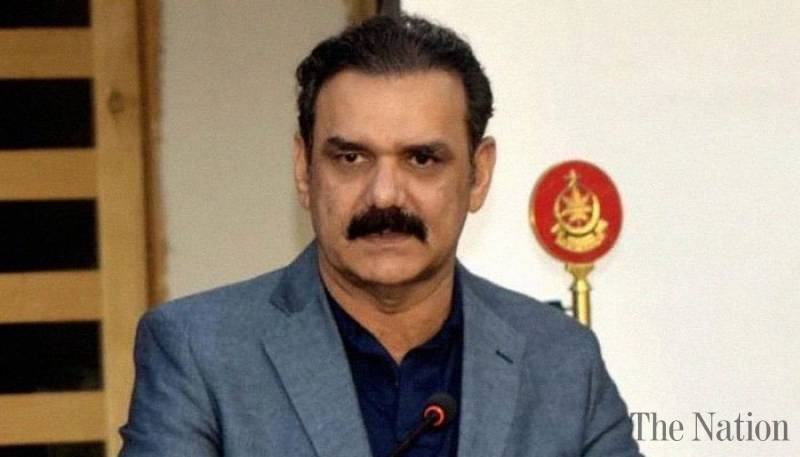The meltdown of Lieutenant-general retired (LGR) Asim Bajwa brings forth the first flash-point for the military after Gen (ret) Musharaff’s debacle. Ahmed Noorani’s story is powerful enough to jolt the whole institution and question the unquestionable mortals. It is partly a well-orchestrated vengeance against the military, over his alleged ill-treatment in the capital, from unknown hooligans. The sources of the story make it a witch hunt, and the involvement of a former officer from enemy ranks make it even more controversial and questionable.
Undermining the CPEC and Pakistan’s economic sovereignty is India’s wish number one. And, current social media circus around the subject is what India wants. And, all those civilian activists and academics speaking openly against the military’s corruption and involvement in the forced disappearances are seeking questions on Bajwa’s wealth and business in the United States.
It is needless to say that the Army is not willing to allow a civilian to overlook the CPEC venture, citing security and trust issues over this sensitive strategic regional partnership. Bajwa, the former DG ISPR, has been facing criticism for a while now, over his dual role as SAPM and Chairman CPEC Authority.
After Noorani’s charge, Bajwa gave a one-line rebuttal—which was not enough to settle the storm. The comprehensive statement has addressed the accusation labeled in the story one by one. General is not out of the woods by any means. The clarifications need to be backed with the document to clear his name and the institution he proudly represents.
The online trends mocking Bajwa over his disappearance for seven minutes from Shahzeb Khanzada’s show is understandable. Clearly, Bajwa was in no hurry to utter a word, journalist would so desperately want him to create a controversy and embarrassment for the rest of his life. Maryam Nawaz’s statement to Sana Bucha is a fine example in this regard. General is intelligent enough to not air a statement to hunt him all his life.
Khanzada asked him where did his wife's share of disinvested money go after June 1? It was a pertinent question, and the general was not prepared enough to respond to this without hesitation. He went around him, but Khanzanda was adamant to repeat the same question three times, to bring the general back to square one.
During the eventful evening, Bajwa played safely and dealt ably with tough questions. The timing of the statement, before the prime time slot of 8 o clock kept journalists underprepared for prompt questions. It became apparent when he told Khanzada that your producer did not research well-enough on his companies when he enquired about a dormant company. Media management is Bajwa’s foray, yet in social media, it is not easy to overcome the trolls and haters willing to tarnish a clean image.
As a public office holder, an Army general is as much answerable to the public as a crooked or corrupt politician. The problem with Bajwa is his appointment on yet another high profile position, even after his retirement after serving the country well as Commander Southern Command and DG ISPR. The recruitment of ex-Army men on high-profile positions can be awkward for any liberal or electoral democracy, but it’s a haul mark of a hybrid or autocratic regime. It serves the country under the current dynamics with a poor choice of alternatives to Prime Minister Imran Khan. The civil activists and political leaders working for civilian supremacy want Army out of sight. But here they are batting for the opposite team. An attempt to malign the focal person for CPEC carries a significance for Indian interests in Pakistan and abroad.
Coming back to the media’s interest in Bajwa’s rebuttal, if Khanzada had more to dig in other than the Bajwa’s wife’s disinvestment, he would not have let go of the general that easily.
Bajwa was successful in vehemently denying the allegations with apt reasoning and clarification. Nevertheless, as ARY’s Kashif Abbasi pointed out, the general has to come with the documentary evidence to back his defense.
Since Bajwa clearly states that out of the total investment of $70 million, $60 million are bank loans, and the remaining $10 million comes from dozens of other investors partnering with his family. The documentary evidence for this should be enough to shut the critics.
Moreover, one of his sons—who live in the US, did not purchase the house in cash, rather only paid the down payment and 80% of the loan/mortgage remain unpaid. I wonder if any of Pakistan’s politicians would have purchased the houses in Surrey and London this way?
Bajwa appears to have debunked Noorani’s claims. Bajwa had the option to stay silent and don’t say a word, but his brave move to come out in the open and counter the allegations with a thorough statement should not be taken lightly. Because if he had nothing to prove, he would not have open this front. He must know, media is complex, and not everyone can handle media trials. Moreover, it can potentially open new fronts, and barrage questions will come his way.
Bajwa has played at the front font and did well to score a boundary, and now, it’s Noorani’s turn to counter general rebuttal.






